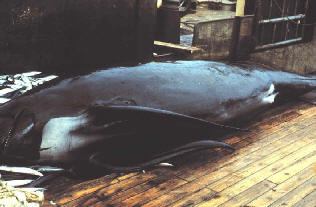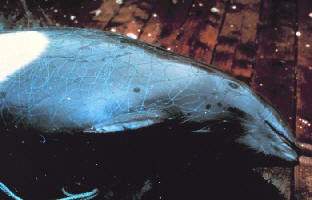|
Bycatch in commercial fisheries - the catching and killing of non-target species - is a worldwide crisis that needs to be addressed immediately, the coalition says. Fishing gear such as, longlines, gillnets and trawl nets can trap and drown marine mammals.
Some species, such as large whales, may not drown immediately, but often swim away with portions of gear or nets wrapped around them. This gear can cut into and become imbedded in the skin causing a number of debilitating and life threatening problems, which often result in a slow death.
Each year, more than 400 harbor porpoises, more than 400 common dolphins, and almost 250 pilot whales are killed by commercial fishing gear in U.S. waters.
New research released this month by the World Wildlife Fund finds that almost 60,000 whales, dolphins and porpoises are killed each year worldwide by commercial fishing practices. This is a figure three times greater than the deliberate killing of an average of 21,000 whales a year by whalers during the 20th century, a practice that caused severe declines in almost all large whale species.
|



